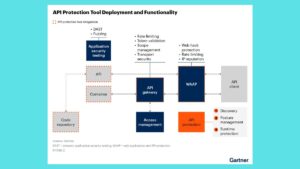Managing Conflict and Resolving Employee Disputes

Managing Conflict and Resolving Employee Disputes

Conflict is an inevitable aspect of any workplace, as individuals with diverse backgrounds, personalities, and work styles come together. While conflict can disrupt productivity and create a negative work environment, effective management and resolution of disputes can lead to stronger relationships, improved collaboration, and a healthier organizational culture. In this blog, we will explore strategies and techniques for managing conflict and resolving employee disputes in a constructive and fair manner.
Understanding the Nature of Conflict:
Conflict in the workplace can arise due to various factors, such as differences in opinions, communication breakdowns, power struggles, or conflicting goals and priorities. It is important to recognize that conflict itself is not inherently negative; it is how we manage and resolve conflict that determines its impact on the workplace.
Strategies for Managing Conflict:
- Encourage Open Communication: Promote a culture of open and respectful communication. Encourage employees to express their concerns, opinions, and ideas openly. Active listening, empathy, and understanding are crucial in creating an environment where conflicts can be addressed constructively.
- Foster a Collaborative Environment: Encourage teamwork and collaboration among employees. Foster a sense of shared purpose and emphasize the value of diverse perspectives. By promoting a collaborative culture, you can create an atmosphere where conflicts are seen as opportunities for growth and innovation rather than as sources of tension.
- Provide Conflict Resolution Training: Offer conflict resolution training to employees and managers alike. Provide them with the skills and techniques necessary to manage and resolve conflicts effectively. Training may include active listening, assertive communication, negotiation skills, and problem-solving approaches.
- Implement Mediation and Facilitation: When conflicts escalate, consider engaging a neutral third party, such as a trained mediator or facilitator. Mediation provides a structured process for parties involved in a dispute to openly communicate, understand each other’s perspectives, and work towards finding mutually acceptable solutions.
- Establish Clear Policies and Procedures: Develop and communicate clear policies and procedures for managing conflicts and resolving disputes. Ensure employees are aware of the available channels for reporting conflicts and the steps involved in the resolution process. Clear guidelines help maintain consistency and fairness in addressing conflicts.
Techniques for Resolving Employee Disputes:
- Encourage Dialogue: Encourage the involved parties to have a direct, face-to-face conversation to express their concerns and viewpoints. This allows for active listening, clarification of misunderstandings, and finding common ground.
- Seek Win-Win Solutions: Encourage a problem-solving mindset focused on finding mutually beneficial outcomes. Encourage parties to collaborate and brainstorm solutions that address the underlying issues and meet the interests of all involved.
- Focus on Interests, Not Positions: Help employees understand the interests and needs behind their positions. By focusing on underlying interests, rather than rigid positions, parties can explore creative solutions that meet the core needs of both parties.
- Remain Impartial and Objective: As a mediator or HR professional, it is crucial to remain impartial and objective during the resolution process. Listen to both sides without bias and ensure a fair and unbiased evaluation of the situation.
- Document Agreements: Once a resolution is reached, document the agreed-upon solutions and expectations. This helps maintain clarity and serves as a reference point for future discussions or potential conflicts.
Conclusion:
Conflict and disputes are a natural part of any workplace, but they need not be detrimental to the organization. By adopting effective conflict management strategies and promoting a culture of open communication and collaboration, HR professionals can proactively address conflicts and foster a positive work environment. Resolving employee disputes requires active listening, empathy, and the use of various techniques such as mediation, problem-solving, and focus on win-win outcomes. By investing in conflict resolution training, establishing clear policies, and providing the necessary support, organizations can create a harmonious workplace where conflicts are opportunities for growth and collaboration rather than sources of tension and division.







